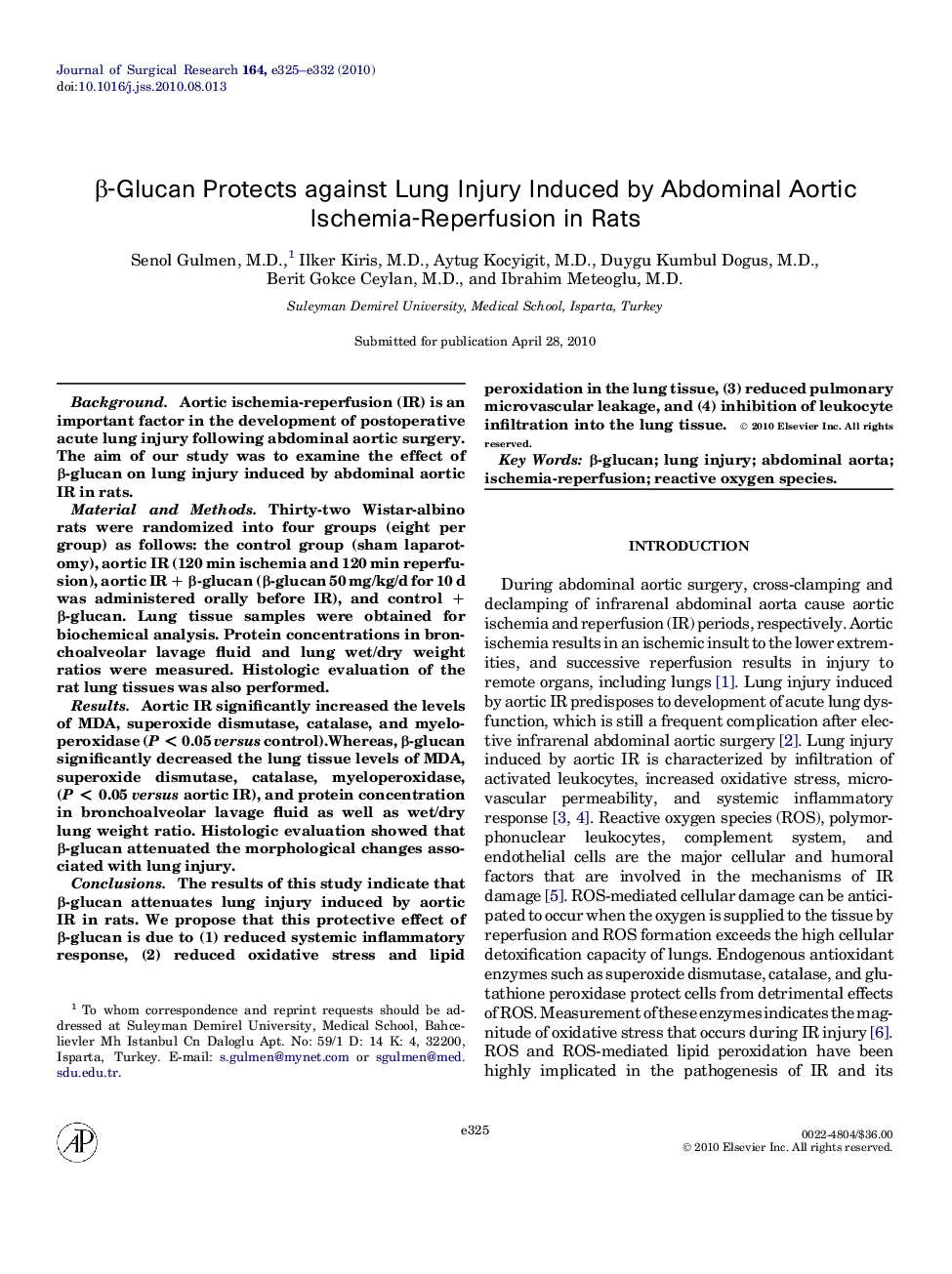| Article ID | Journal | Published Year | Pages | File Type |
|---|---|---|---|---|
| 4302758 | Journal of Surgical Research | 2010 | 8 Pages |
BackgroundAortic ischemia-reperfusion (IR) is an important factor in the development of postoperative acute lung injury following abdominal aortic surgery. The aim of our study was to examine the effect of β-glucan on lung injury induced by abdominal aortic IR in rats.Material and MethodsThirty-two Wistar-albino rats were randomized into four groups (eight per group) as follows: the control group (sham laparotomy), aortic IR (120 min ischemia and 120 min reperfusion), aortic IR + β-glucan (β-glucan 50 mg/kg/d for 10 d was administered orally before IR), and control + β-glucan. Lung tissue samples were obtained for biochemical analysis. Protein concentrations in bronchoalveolar lavage fluid and lung wet/dry weight ratios were measured. Histologic evaluation of the rat lung tissues was also performed.ResultsAortic IR significantly increased the levels of MDA, superoxide dismutase, catalase, and myeloperoxidase (P < 0.05 versus control).Whereas, β-glucan significantly decreased the lung tissue levels of MDA, superoxide dismutase, catalase, myeloperoxidase, (P < 0.05 versus aortic IR), and protein concentration in bronchoalveolar lavage fluid as well as wet/dry lung weight ratio. Histologic evaluation showed that β-glucan attenuated the morphological changes associated with lung injury.ConclusionsThe results of this study indicate that β-glucan attenuates lung injury induced by aortic IR in rats. We propose that this protective effect of β-glucan is due to (1) reduced systemic inflammatory response, (2) reduced oxidative stress and lipid peroxidation in the lung tissue, (3) reduced pulmonary microvascular leakage, and (4) inhibition of leukocyte infiltration into the lung tissue.
